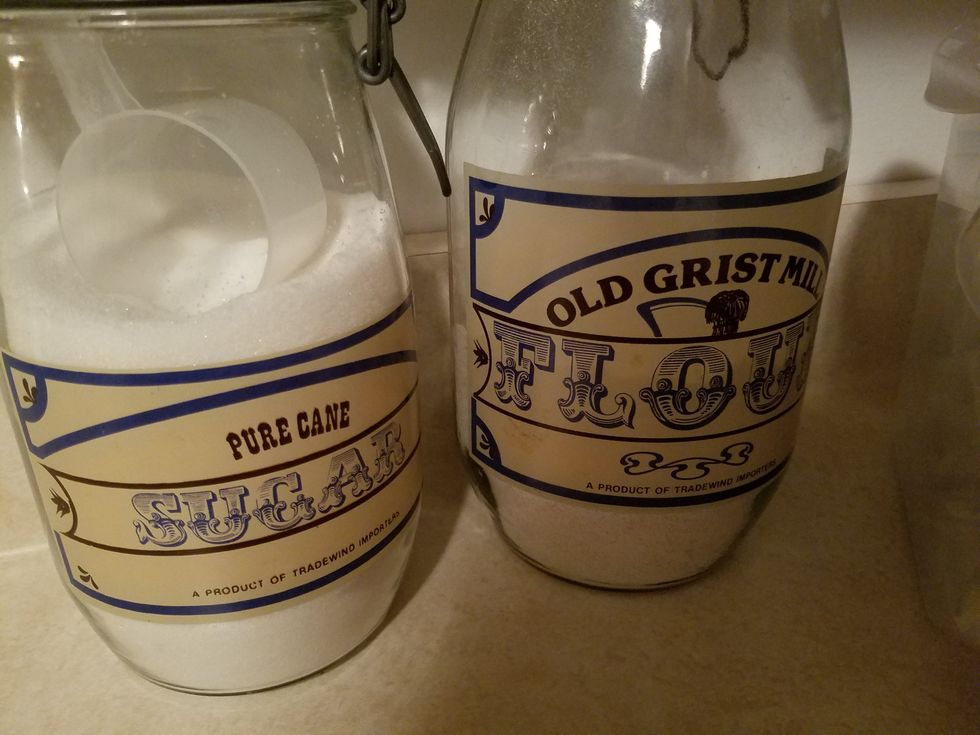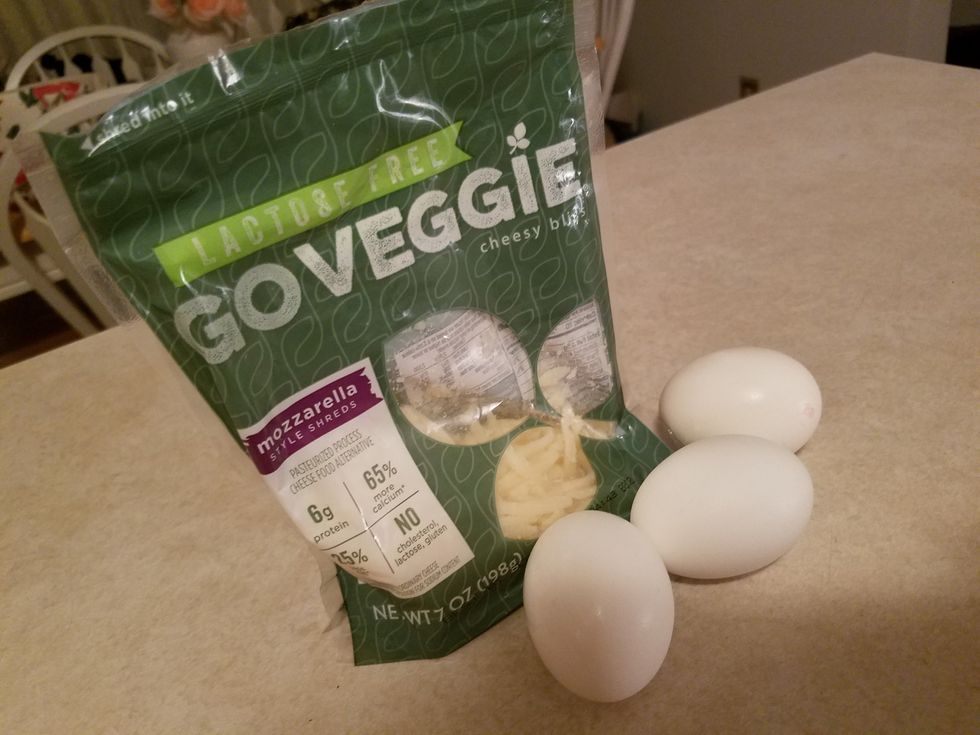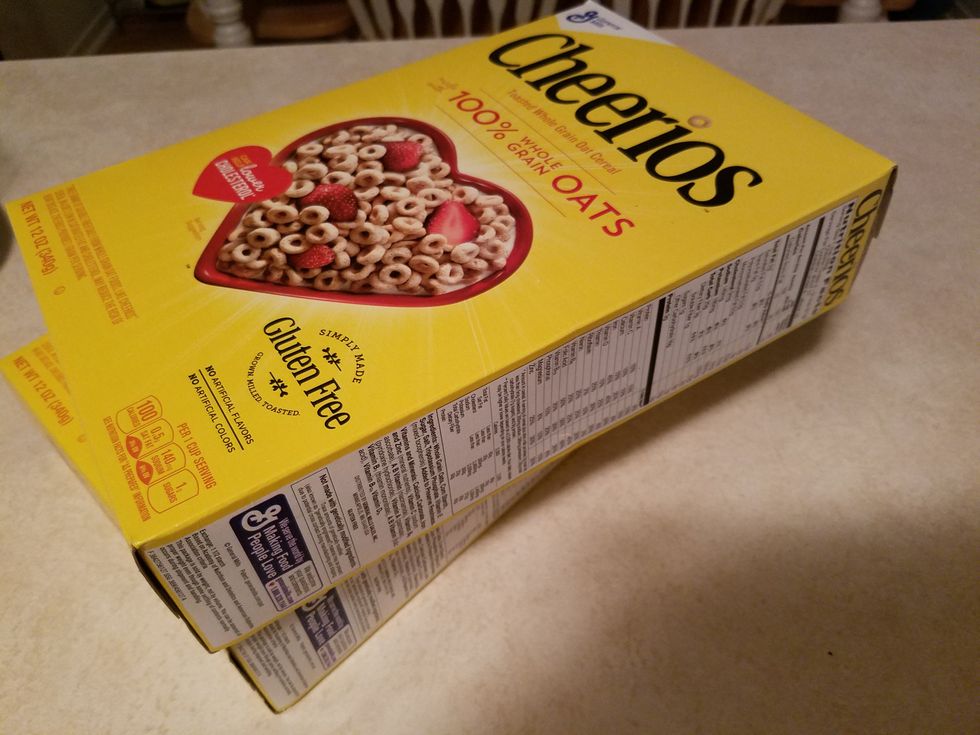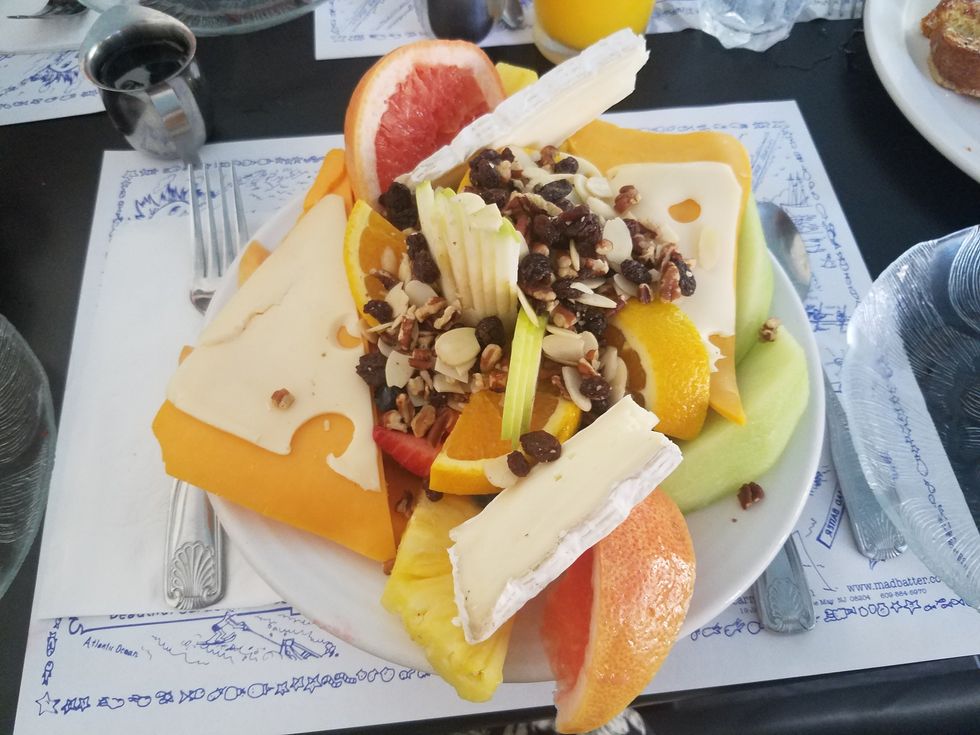For a while, I've struggled with IBS although I was only diagnosed within the last year. For those who don't know, Irritable Bowel Syndrome, or IBS, is a condition only recently recognized by the nutrition community and effects how a person's large intestine functions. Depending on which type someone has, they can have chronic constipation, diarrhea, abdominal bloating and discomfort, or some combination of these issues. I'll spare you the details, but my symptoms can get pretty intense if I don't watch what I eat, so usually I'm religious when it comes to eating low FODMAP foods.
Low-FODMAP foods are foods low in sugars that cause IBS symptoms to flare up. They range from the sugars found in gluten to those in brussel sprouts and it can be tricky at first to navigate the narrow list of items I can eat. Luckily, I've found a routine that is not only low FODMAP but tasty and affordable. The journey to developing this routine was a confusing one, though, and ended in me sticking almost exclusively to whole foods. Here are three events that planted the seeds for my distrust of processed foods.
1.The gluten-free bread on the market stinks----both nutritionally and palate wise.

Shannon Solley
Before eliminating high-fodmap foods from my diet, I had been eating whole grain, high protein bread. Its grainy texture was delicious, and since it had a good fiber to sugar ratio I was content to eat it at breakfast. To my horror (and as previously mentioned in my making my own gluten-free bread article) though, I found that gluten-free bread often had more sugar with less fiber. There was a period of time where I simply sucked it up and ate multigrain gluten-free bread and found that I was still having trace symptoms of my IBS. Instinctually, I cut down on the low-fodmap fruit, which still need to be consumed in small portions and are easy to over-do on but saw no results. While thinking I might not have IBS at all but some other mysterious GI problem, I was cringing at the nutrition label of the gluten-free bread in passing. I was making my breakfast, and as I slipped my bread into the toaster, the thumb of my other hand inadvertently underlined the words "Agave Syrup". I wanted to scream. Agave is a high-FODMAP food, and it was sweetening my supposed low-fodmap food.
2. Veggie cheeses are often not for the lactose intolerant.

Shannon Solley
Having IBS is kinda like being lactose intolerant, just with more GI symptoms. For this reason, only certain cheeses are considered low-fodmap under specific circumstances. Something like goat cheese is allowed, for example, as long as has little to no carbohydrates, which is a good indicator of the lactose content. Since I didn't feel like checking the ingredients and saw that it had 0 sat fat, I opted for veggie cheese. My mistake. There I was, fresh out of the gym and getting ready for a date with a hot boy from tinder. I wanted a good post-workout snack and decided to make a veggie-cheese egg white omelet. Within the next hour I found my stomach swelling to an absurd size, so much so that I had to switch the outfit I picked from a cute sundress to a big shirt and shorts. I realized my meal had done this right away and checked the ingredients of the cheese. In the center of that tiny box of font were the words "lactic acid."
3. Gluten-free cereal (I’m looking at you Cheerios!).

Shannon Solley
Advertised on the box is it's gluten-free, whole grain status, but don't be fooled---Cheerios has corn starch among its ingredients. Made from extracting and processing corn kernel endosperm, cornstarch is a calorie dense carbohydrate commonly used in cooking that is high FODMAP. I used to eat Cheerios every day for breakfast, but found once I replaced it with good old steel cut oatmeal I found that my stomach was flatter in the mornings. It wasn't until I was reading the ingredients on the box jokingly while my brother was having a bowl that I read this ingredient.
And so, with these experiences, a distrust of non-whole foods was planted, watered, and perched on a sunny windowsill in my mind. Now a thick oak, I find my distrust to help motivate myself to cook.















